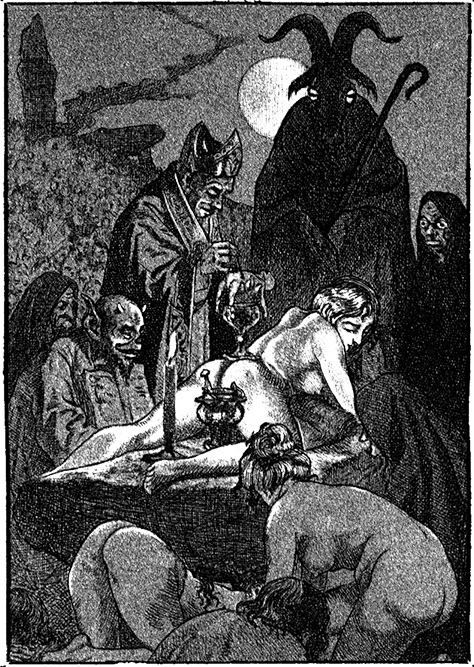Difference between revisions of "Template:Occult.live:Today's featured article"
Occultwiki (talk | contribs) |
Occultwiki (talk | contribs) |
||
| Line 1: | Line 1: | ||
[[File:Black | [[File:The Black Mass.jpg|250px|left]] | ||
'''[[ | '''[[Black magic]]''' has traditionally referred to the use of supernatural powers or [[ritual magic|magic]] for evil and selfish purposes; or magic associated with [[the Devil]] or other evil spirits. It is also sometimes referred to as the "left-hand path", (its right-hand path counterpart being benevolent white magic). In modern times, some find that the definition of black magic has been convoluted by people who define magic or ritualistic practices that they disapprove of as black magic. | ||
While "[[natural magic]]" became popular among the educated and upper classes of the 16th and 17th century, [[ritual magic]] and folk magic remained subject to persecution. 20th century author Montague Summers generally rejects the definitions of "white" and "black" magic as "contradictory", though he highlights the extent to which all magic, regardless of intent, was considered "black," even magic involving [[angel]]s, because it attempted to subvert the will of [[Yahweh|God]] in favor of the [[magician]]. | |||
'''([[ | '''([[Black Magic|Full Article...]])''' | ||
Revision as of 18:28, 20 December 2022
Black magic has traditionally referred to the use of supernatural powers or magic for evil and selfish purposes; or magic associated with the Devil or other evil spirits. It is also sometimes referred to as the "left-hand path", (its right-hand path counterpart being benevolent white magic). In modern times, some find that the definition of black magic has been convoluted by people who define magic or ritualistic practices that they disapprove of as black magic.
While "natural magic" became popular among the educated and upper classes of the 16th and 17th century, ritual magic and folk magic remained subject to persecution. 20th century author Montague Summers generally rejects the definitions of "white" and "black" magic as "contradictory", though he highlights the extent to which all magic, regardless of intent, was considered "black," even magic involving angels, because it attempted to subvert the will of God in favor of the magician.
